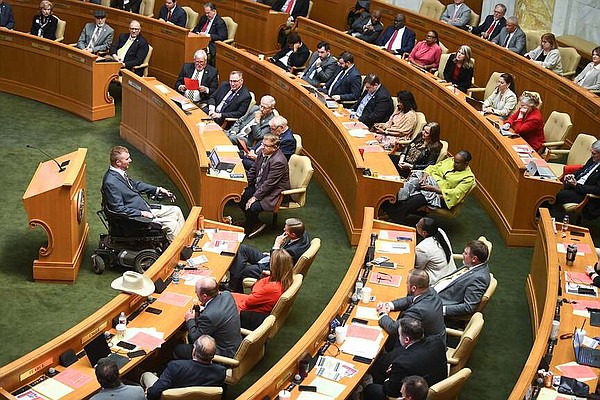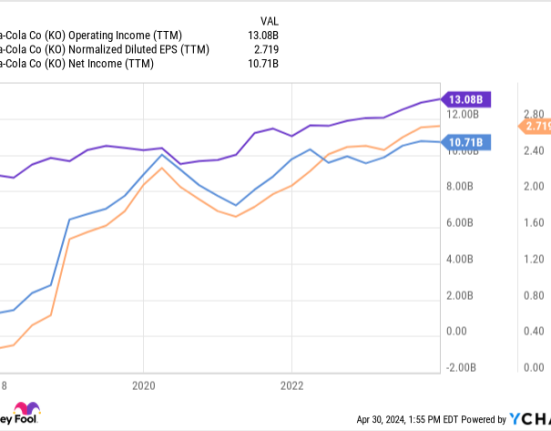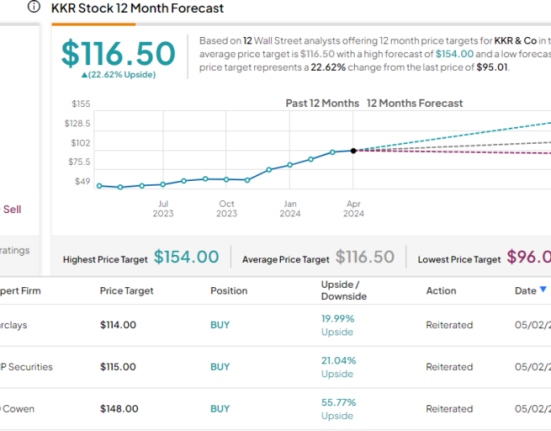Two bills meant to strengthen regulations on cryptocurrency mining in Arkansas will go to the state House of Representatives next week.
If approved by the chamber, the proposed legislation could be on Gov. Sarah Huckabee Sanders’ desk by Wednesday and would go into effect immediately upon her signature.
Senate Bill 78 and Senate Bill 79, sponsored by Sen. Joshua Bryant, R-Rogers, and Sen. Missy Irvin, R-Mountain View, respectively, were introduced as nonappropriation bills in a fiscal session, requiring first that resolutions authorizing them be approved by a two-thirds vote of the Senate and House. The bills address issues that include local control over crypto mining regulation, noisy facilities and ownership of crypto mines by certain foreign parties.
They come after lawmakers passed Act 851 of 2023, known as the Arkansas Data Centers Act, which limited the ability of cities and counties to regulate crypto mines. Sponsored by Bryant, the law easily passed last year. Many legislators, including Bryant, have since expressed regret over its passage after noisy crypto mining operations sprouted up around the state.
The bills received broad approval in the Senate, with lawmakers voting 26-3 in favor of Senate Bill 78 and 32-0 in favor of Senate Bill 79.
Both bills are scheduled to appear before the House Committee on City, County and Local Affairs at 10 a.m. Tuesday. If approved, they will go before the full House on Wednesday.
“If all goes well, the governor will have her chance to review and sign it,” Bryant said.
Due to the bills’ emergency clauses, both would become effective immediately upon Sanders’ signature. Crypto mining businesses in operation before the bills become law would have 90 days to comply once the legislation goes into effect. Any prohibited foreign party-controlled business operating a crypto mine in Arkansas before the bills become law would have one year to divest all interest in that enterprise.
Senate Bill 78 requires that crypto mining operations “apply noise-reduction techniques,” such as using liquid cooling or “fully enclosing the envelope.” The latter technique involves enfolding the space where noise from a crypto mining business is directly produced around all sides, including above and below the equipment that produces the sound.
The bill states a crypto mining facility may use a passively cooled, premanufactured container without enclosing the space in a complete envelop if the business locates or relocates to a minimum of 2,000 feet from the nearest residential or commercial use structure, or an area zoned for industrial use or “an otherwise approved use.”
A person who owns land within 2,000 feet of the nearest property line of a crypto mining business could file a lawsuit in circuit court to enforce the noise reduction techniques listed in the bill.
Senate Bill 79 would require crypto mining businesses to acquire a permit from the Oil and Gas Commission to operate. Irvin has said the bill “provides a state presence of regulatory oversight” to crypto mining operations.
Under both bills, a prohibited foreign party-controlled business includes one in which the party possesses an “ownership interest of greater than zero percent.”
The bills define a prohibited foreign party as a person, party or government subject to the International Traffic in Arms Regulations, which are federal rules meant to restrict the sale of arms to and from certain foreign governments. Many lawmakers have expressed concerns that some crypto operations have ties to China or other adversaries of the United States.
The proposed legislation also states civil penalties and damages received by the attorney general’s office under the section on foreign party-controlled businesses would be split between the state Oil and Gas Commission fund and the attorney general’s office.
Bryant said he has heard concerns from House members about restrictions of foreign-owned businesses and whether other industries might face similar regulations next.
“I think if it deals with our natural resources, if it deals with our monetary system, I think those are areas that we should always look at, have a debate over, and see if that’s an area that we should restrict adversaries to our success here in America,” he said.
Bryant said he views the proposed legislation as “the start of a conversation” that will probably continue in next year’s regular legislative session. He encouraged lawmakers in the meantime to visit crypto mining operations in the state that are locally owned and operated and see what a “free market, capitalistic approach to our system” looks like.
The House resolutions that authorized Bryant and Irvin to introduce their Senate bills passed by significant margins April 17. House Resolution 1009, sponsored by Rep. Rick McClure, R-Malvern, passed with an 80-3 vote. House Resolution 1020, sponsored by Rep. Jeremiah Moore, R-Clarendon, passed in an 84-4 vote. The resolutions support Bryant’s and Irvin’s bills, respectively.
Six resolutions sponsored by Rep. Josh Miller, R-Heber Springs, failed to meet the two-thirds requirement to clear the House. Each resolution would have authorized Sen. Bryan King, R-Green Forrest, to introduce a bill focused on placing restrictions on the operation of crypto mines. King, as well as Sen. Stephanie Flowers, D-Pine Bluff, have been outspoken in their criticism of the two bills making their way to the House next week, suggesting the bills do not go far enough in regulating the industry.
Miller, however, told fellow House members when he presented his resolutions for King that he didn’t want to get into a debate on the crypto mining industry, but to simply get the resolutions approved. He voted in favor of the resolutions to authorize Bryant and Irvin to introduce their bills.
“I don’t care who runs it,” he said at the time. “I just want to see the right thing get done.”







